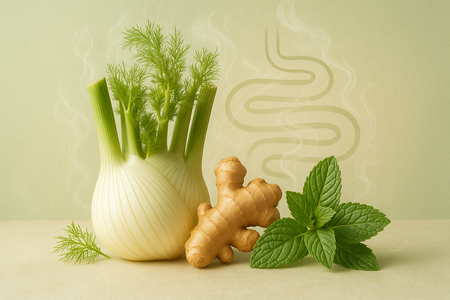Every Plant Has a Voice
There’s a quiet intimacy to working with herbs.
When you pour hot water over leaves, you’re starting a conversation — one that begins in fragrance and ends in feeling.
But sometimes, water alone can’t pull out the full story.
That’s where tinctures come in.
If tea is a whisper, tinctures are the concentrated echo — carrying the plant’s deepest chemistry, preserved in time.
Both have purpose. Both have power.
Understanding their differences is how we move from simply drinking herbs to working with them — with precision, respect, and awareness.
Why Extraction Matters
Herbal extraction is the process of pulling a plant’s medicinal compounds from its physical form into a usable preparation — tea, tincture, oil, or powder.
Each solvent (water, alcohol, oil, vinegar) extracts different types of compounds.
-
Water (as in tea) extracts minerals, vitamins, mucilage, and gentle aromatics.
-
Alcohol (as in tinctures) extracts alkaloids, resins, and essential oils that water can’t reach.
That’s why herbalists use both — because healing doesn’t come from one frequency alone.
Some lessons require warmth and patience; others need depth and intensity.
The Medicine of Tea
Tea — or infusion — is the simplest and most ancient form of extraction.
It’s accessible, gentle, and ideal for daily use.
When you steep herbs in hot water, you’re creating a short-term, low-solvent extraction that nourishes and restores.
It’s especially effective for herbs rich in water-soluble nutrients like magnesium, calcium, and flavonoids.
Perfect for:
-
Nervous system tonics (Chamomile, Lemon Balm, Tulsi)
-
Digestive aids (Ginger, Fennel, Peppermint)
-
Daily detox and hydration support (Nettle, Hibiscus, Dandelion)
Energetically, tea is feminine — receptive, rhythmic, and nurturing.
It encourages presence. It builds relationship.
You prepare it fresh, you drink it warm, and you let its medicine unfold slowly — like a friendship that deepens with time.
The Medicine of Tinctures
Tinctures, by contrast, are concentrated plant extracts made by soaking herbs in alcohol (or glycerin) for several weeks.
This process preserves and amplifies the plant’s active compounds, making them highly potent and shelf-stable.
They’re ideal when you need precision, portability, or long-term support.
Perfect for:
-
Deep nervous system repair (Ashwagandha, Passionflower, Skullcap)
-
Immune defense (Echinacea, Astragalus, Reishi)
-
Hormonal and adrenal balance (Maca, Shatavari, Rhodiola)
Energetically, tinctures are masculine — active, sharp, transformative.
A few drops can shift the body’s chemistry quickly.
They carry not only the plant’s essence, but also its fire — distilled and preserved.
Tea vs. Tincture: Two Sides of the Same Medicine
| Aspect | Herbal Tea | Tincture |
|---|---|---|
| Solvent | Water | Alcohol or Glycerin |
| Strength | Gentle, nutritive | Concentrated, potent |
| Onset | Slow, cumulative | Fast, direct |
| Shelf Life | 1 day (fresh) | Years (preserved) |
| Best For | Daily rituals, hydration, maintenance | Targeted healing, chronic imbalance |
| Energy | Feminine, soothing | Masculine, activating |
Neither is superior.
They serve different rhythms — like sunrise and sunset.
Tea teaches you to slow down; tinctures remind you how to act.
When used together, they form a complete cycle of healing.
The Art of Combination
Many herbalists — including those at Elixart — believe the greatest potency comes from layering forms.
A morning tea can open the body’s channels; a mid-day tincture can target the system directly; an evening infusion can seal the calm.
For example:
-
Start your day with a cup of Rhodiola & Tulsi Tea for balanced energy.
-
Midday, take a few drops of Ashwagandha Tincture to maintain focus and stress resilience.
-
Evening, enjoy a warm Chamomile-Lavender Tea to close the cycle in rest.
This rhythm creates a continuous arc — gentle activation, steady support, peaceful restoration.
How to Make a Simple Tincture at Home
You don’t need a laboratory — just patience and care.
You’ll Need:
-
Dried or fresh herbs (cut small)
-
80–100 proof alcohol (vodka or brandy)
-
Glass jar with lid
-
Dark glass dropper bottle for storage
Steps:
-
Fill your jar halfway with herbs.
-
Pour alcohol over them until covered by at least an inch.
-
Seal tightly and shake daily for 4–6 weeks.
-
Strain through cheesecloth, bottle, and label.
You now have a shelf-stable tincture that will last for years.
A few drops under the tongue or diluted in tea will deliver quick, potent results.
Why Herbalists Still Honor the Cup
Even with all the modern extraction tools, most herbalists still begin their day with tea.
Why? Because tea reminds us that medicine is relational, not mechanical.
When you make a cup, you’re involved — smelling, tasting, observing, feeling.
It’s a dialogue with the living intelligence of plants.
Tinctures bring convenience, but tea brings connection.
Together, they complete the circle — connection and concentration, presence and potency.
From Practice to Presence
In a world obsessed with outcomes, herbs invite us back to process.
Whether you’re steeping or shaking, measuring or sipping, every step becomes meditation.
Every drop carries the same message: healing is participation.
And when you bring that awareness into your daily life — your cup, your dropper, your breath — medicine stops being something you take.
It becomes something you live.
The Elixart Philosophy
At Elixart, we don’t choose between tea and tincture — we honor both.
Our Herbal Elixirs are crafted to bridge these worlds: the gentle nourishment of tea with the depth and precision of tincture.
Each blend invites you to listen to your body’s rhythm — and choose the form that speaks to it today.
Because some mornings call for warmth.
And some moments call for fire.
True healing listens.
✨ Explore the Art of Herbal Medicine
Experience both the softness of tea and the potency of tinctures with Elixart’s Herbal Elixir Collection.
Rooted in tradition. Refined for modern life.
Shop Herbal Elixirs





